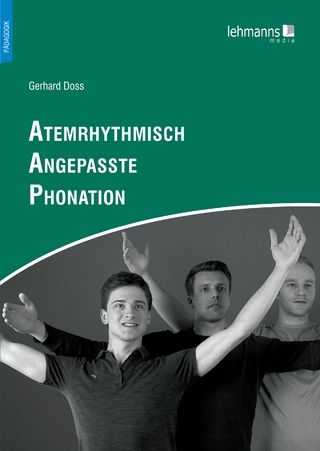
The Gothic Resultative
Brill (Verlag)
978-90-04-44812-4 (ISBN)
Gothic is unique among Germanic languages in regards to the ways it expresses non-agentive actions. It both retains a formal passive and has two periphrastic passives. In addition it presents an intransitive verb class with generally inchoative meaning. R. Moses Katz examines the semantics of these categories and shows how they provide a robust non-agentive paradigm in Gothic, including a functional, result-state perfect in the passive. In two parts, he examines first the inchoative verb and then the periphrastic passive. He proposes that the development of both types is underpinned by a single argument structure based on the resultative, a coordinated event type that links a transition with a resulting state.
R. Moses Katz, Ph.D. (2016), University of Georgia, is Instructor of English at Yeshiva Ohr Yisrael, Atlanta. He has presented at the Universities of Georgia and North Carolina and was invited to speak on the Germanic perfect at Kentucky University.
List of Tables
Notations
Part 1 Preliminaries
1 Introduction
1.1 Objective and Scope
1.2 Overview of the Gothic Corpus
1.3 The Gothic Translation Process
1.4 Translation and the Gothic Vorlage
2 Grammatical Theories and Constructs
2.1 Voice
2.2 Unaccusativity
2.3 Tense, Mood and Aspect
2.4 Telicity
2.5 Event-Boundedness
2.6 The Vendler Taxonomy of Verbal Types
2.7 The Copula and the Auxiliary
2.8 Resultativity and Its Types
2.9 Resultativity in Distributed Morphology
3 The Perfect
3.1 Characteristics of the Perfect
3.2 Construction and Readings of the Perfect
3.3 The Indefinite Past Theory of the Perfect
3.4 Semantics of the Perfect via the Indefinite Past Theory
4 Language-Specific Verbal Systems
4.1 The TMA System of Koine Greek
4.2 The TMA System of Gothic
Part 2 The -nan Verb in Gothic
5 Historical Development of Nasal Verb Classes
6 Descriptive Approaches to the -nan Verb
6.1 The Passive Approach
6.2 The Intransitive-Inchoative Approach
6.3 Non-inchoative Approaches
7 Positioning -nan Verbs in Developmental Systems
7.1 System of Valence: -nan as Detransitivized Predicates
7.2 System of Diathesis: -nan as Middle Voice
7.3 System of Causation: -nan as Anticausative
7.4 System of Argument Structure: -nan as Resultative
8 Toward a Semantic Description of -nan Verbs
8.1 -nan Verbs and Adjectives
8.2 -nan verbs and Passive Participles
8.3 Section Summary: Destatal and Deadjectival
8.4 Statal Semantics: The aukan System
8.5 End-Point Semantics
8.6 Examples of Seemingly Non-fientive Semantics in -nan Verbs
8.7 Summary
9 Toward a Syntactic Description of -nan Verbs
9.1 Structural Model of Resultative Constructions
9.2 A Semantic Characterization of Deadjectival Fientives and -nan Verbs
9.3 Implications
9.4 Summary: Perfectivization as a Constraint on Aspect
Part 3 The Periphrastic Passive in Gothic
10 Views of the Periphrastic Passive
10.1 Periphrasis as “False” Passive
10.2 Periphrasis as Passive and Resultative
10.3 Lexical Aspect as an Interpretive Means of Choosing a Periphrasis
10.4 Lexical Aspect as a Systematic Means of Choosing a Periphrastic
10.5 Consensus Concerning Lexical Aspect in Gothic
11 Periphrasis as a Method for Translation
11.1 Proposal
11.2 Previous Analyses
11.3 Methodology
11.4 The wisan Periphrasis: Overview
11.5 The wairþan Periphrasis: Overview
12 Past-Time Periphrases and Greek Predicates
12.1 Past-Time Periphrases and the Greek Aorist
12.2 Past-Time Periphrases and the Greek Perfect
12.3 Past-Time Periphrases and the Greek Supplementary Perfect Participle
12.4 Past-Time Periphrases and the Greek Imperfect
12.5 Comparison of the Gothic Periphrases in the Past Tense
13 Present-Time Periphrases and Greek Predicates
13.1 Present-Time Periphrases and the Greek Perfect
13.2 Present-Time Periphrases and the Greek Supplementary Perfect Participle
13.3 Present-Time Periphrases and the Greek Present
13.4 Present-Time Periphrases and the Greek Aorist
14 Statistical Analysis of Periphrastic Passives
14.1 Distribution of Features: Greek Aorist to Gothic Past and Non-past
14.2 Distribution of Features: Greek Aorist to Gothic was + PP vs. warþ + PP
15 Comparison of Periphrastic Passives
16 Resultativity as a Means to a Full Passive Paradigm
17 Proposing a Perfect Passive Semantics
18 Toward a Syntactic Description of Gothic Periphrases
19 Diachronic Implications
19.1 The State of the ‘Be’ Passive in Gothic
19.2 The State of the ‘Become’ Passive in Gothic
Appendix 1: Gothic Periphrases
Appendix 2: Clausal Features of Gothic Periphrases
References
Index
| Erscheinungsdatum | 08.02.2021 |
|---|---|
| Reihe/Serie | Brill's Studies in Indo-European Languages & Linguistics ; 22 |
| Verlagsort | Leiden |
| Sprache | englisch |
| Maße | 155 x 235 mm |
| Gewicht | 791 g |
| Themenwelt | Geisteswissenschaften ► Sprach- / Literaturwissenschaft ► Sprachwissenschaft |
| ISBN-10 | 90-04-44812-8 / 9004448128 |
| ISBN-13 | 978-90-04-44812-4 / 9789004448124 |
| Zustand | Neuware |
| Haben Sie eine Frage zum Produkt? |
aus dem Bereich


